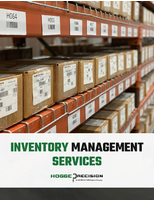RFID Tags from UPM Raflatac Assure Fast and Accurate Deliveries for Log House Manufacturer Honkarakenne
Share:
(UPM Raflatac, Tampere, 30 September 2008 at 14:00) - Log house manufacturer Honkarakenne has gained substantial benefits since implementing RFID tags in its production. Tags attached to individual logs contribute to the fact that several unique detached houses can be manufactured simultaneously. In addition to accelerating the manufacturing process, the tags indicate the correct location for each log in the construction stage. From the customers' perspective this means faster and accurately compiled deliveries. Honkarakenne's RFID system uses UHF EPC Gen2 ShortDipole tags from UPM Raflatac.
Honkarakenne was one of the first in its field to start piloting an RFID system in 2007, and the experience has been good. "Unlike the bar code technology we used before, the RFID tags do not require a direct line of sight with the reader and they function faultlessly even in demanding industrial environments. We have achieved excellent read rates, so it is no longer necessary to identify logs manually. This, in turn, has accelerated our processes," says Olavi Piispanen, Maintenance Manager at Honkarakenne.
Each log house consists of some thousand logs. Each log and it's millings need to be carefully identified in the production phase for them to arrive in the right place at the construction stage. "In practice, tags are attached to each log after they have been cut to the right measurements during planing. The tags then inform the production line about the actions that need to be carried out on individual logs. RFID readers located in automated machines identify the logs, and tooling machines carry out actions defined in the design phase. Next, the logs are identified just before the computer vision which is used to check that the logs have been through all the right operations. The logs are identified once more before packing to assure accurately compiled deliveries to builders, complete with a packing list," Piispanen explains. Honkarakenne currently uses around 2,000 RFID tags in its production each day.
Confirming the authenticity and origin of products and introducing automation to various functions are typical of the industry challenges solved by RFID. "As raw material costs continue to rise, materials need to be utilized more carefully. Speed and efficiency in the supply chain are competitive advantages, and an area where RFID offers undisputed benefits," says Jari Ovaskainen, Business Development Director, UPM Raflatac, RFID.
For further information, please contact:
Mr Jari Ovaskainen, Business Development Director, RFID, UPM Raflatac, tel.
+358 40 353 2880
Mr Reijo Virtanen, Director of Production, Honkarakenne, tel. +358 40 543 0829, reijo.virtanen@honka.com
Mr Olavi Piispanen, Maintenance Manager, Honkarakenne, tel. +358 400 323 962, olavi.piispanen@honka.com
About UPM Raflatac
UPM Raflatac, the Label Division of UPM, is a world-leading supplier of self-adhesive label materials for a wide variety of needs in product and information labeling. In addition, UPM Raflatac is at the global forefront in the development and high-volume production of HF and UHF radio frequency identification (RFID) tags and inlays. UPM Raflatac has around 2,700 employees and made sales of approximately EUR 1 billion (USD 1.4 billion) in 2007. UPM Raflatac has a global service network consisting of 12 factories on five continents and a broad network of distribution and slitting terminals and sales offices worldwide. Further information is available at www.upmraflatac.com.
About Honkarakenne
Honka Group is the world leader in manufacturing and marketing of genuine wooden houses and over 50 years, its products have been sold to more than 40 countries. Honka offers both family homes and holiday homes. The houses are manufactured at the company's primary factories in Karstula and Alajärvi. The main offices are located in Tuusula. The group also includes, among others, Finwood (68 %), which manufactures summer cabins, saunas and garden products, and TimberHeart Ltd (38 %), which markets individual timber frame houses. In 2007, the group's turnover was MEUR 93, with exports accounting for approximately 60% of the total. The company has approximately 420 employees and a sales network covering 30 countries.
Besides Finland, Honka has subsidiaries in Germany, France and Japan. Honka Group has a strong family tradition and the company's B-shares are listed on the Small Companies listing of the OMX Nordic Exchange Helsinki.
www.honka.com.




